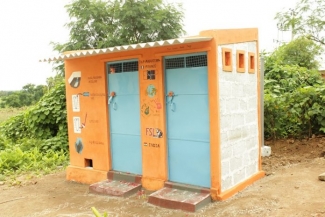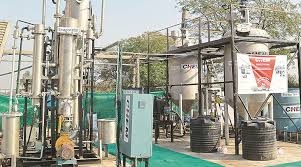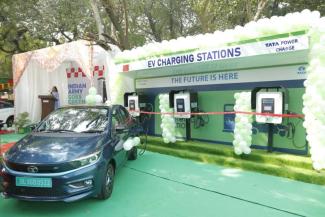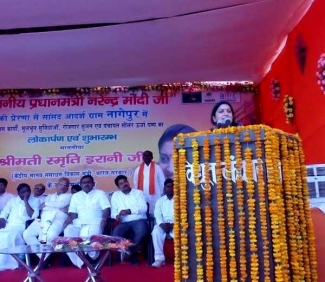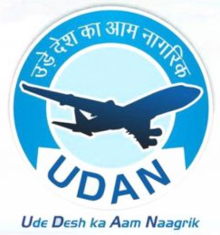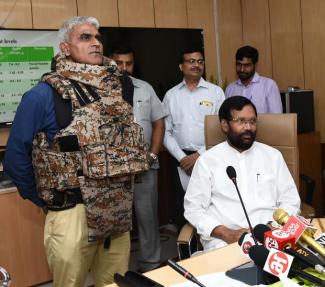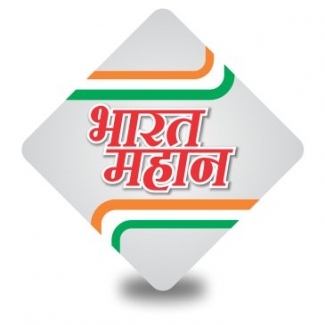
Field trials to evaluate drone effectiveness in controlling sugarcane crop diseases
Ministry of Civil Aviation (MoCA) and Directorate General of Civil Aviation (DGCA) have granted a conditional exemption to ICAR - Indian Institute of Sugarcane Research (llSR), Lucknow, Uttar Pradesh for conducting the trials to evaluate drone spraying solution for controlling pest and diseases of sugarcane crop using drones.
The exemption is valid until 30th November 2021 from the date of issue of the permission letter or until the Digital Sky Platform becomes operational, whichever is earlier. This exemption shall be valid only if all conditions and limitations as stated below are strictly adhered to. In case of violation of any condition, this exemption shall become null and void and action may be initiated by MoCA & DGCA.
Conditions and limitations to the ICAR - Indian Institute of Sugarcane Research to use Remotely Piloted Aircraft Systems:
- This exemption from the paragraphs 5.2 (b), 5 3, 6 1,6.2.2(e), 6.2.3 (b), 6.3, 7, 8.4, 9.2, 9.3, 11.1 [c d], 11.2 [a,d], 12.4, 12.5, 12.18, 12.19 of CAR Section 3, Series X, Part I issued to Institute of Sugarcane Research (llSR) is subject to exemption from Rule 15A of the Aircraft Rules, 1937 by Ministry of Civil Aviation.
- The llSR shall obtain necessary clearances from (a) Local Administration (b) Ministry of Defence (c) Ministry of Home Affairs (d) Air Defence Clearance from Indian Air Force (e) Airport Authority or India (AAI) and (f) Ministry of Agriculture [as applicable) prior to operation of Remotely Piloted Aircraft System (RPAS).
- M s General Aeronautics engaged by llSR (through Mahindra & Mahindra ltd.) shall only operate the RPAS models specified in the approved Standard Operating procedures (SOP) No. GA/DGCA/CA0202 Revision No. Initial Issue dated 08 January 2021. The operations of the RPAS having valid Drone Acknowledgement Number (DAN) [specified in the approved SOP] shall be operated as per the above-mentioned approved SOP in the area specified therein. Any change in the approved SOP for e.g. Change in procedures or RPAS or use case or personnel or area specified in the approved SOP shall be included in the SOP and submitted to DGCA for approval.
- llSR shall ensure that only trained I experienced bona fide personnel operates the RPAS as per the approved SOP. Subsequently, the RPAS operator shall ensure that remote flight crew are trained through approved FTOs/ RPTOs.
- The RPAS Operator shall ensure that the RPAS is in working condition and maintained as mentioned in the approved SOP and snail be responsible for any eventualities due to malfunction/disorientation of equipment.
- RPAS operator shall maintain the records of each RPA flight and make such records available to the DGCA on demand.
- llSR shall lake necessary permission (if required] regarding Aerial Photography from Directorate of Regulations & information, DGCA under Rule 13 of the Aircraft Rules, 1937. The photographs/video-graphs, if taken through RPAS shall be used by llSR only. llSR shall be responsible for safely and security of RPAS and data collected through RPAS. llSR shall adhere to DST Guidelines for acquiring and producing geospatial data and geospatial data services including maps (if applicable).
- The RPAS operator shall ensure that the RPAS are made NPNT compliant [certified by QCI] as soon as the digital sky platform is made operational.
- llSR shall ensure that each RPAS operated by M s General Aeronautics for the subject purpose has fire resistant identification plate inscribed legibly with OAN, DAN, and Model No. of the RPAS.
- The operation of RPAS shall be restricted to day operations (from Sunrise to Sunset}, within Visual Line of Sight (VLOS) in uncontrolled airspace only and al a height of maximum 20ft from AGL
- RPAS shall not be operated in the vicinity of airport as per the provisions of the CAR. If required to operate near the airport, approval from Airports Authority of India (AAI) and/or concerned airport/airfield operator shall be taken in advance regarding time and area of operations of RPAS.
- llSR shall ensure their 10 items are discharged or dropped during light of the RPAS. The llSR shall a so ensure that hazardous material or variable payload are not carried in/using the RPAS under any circumstances except allowed pesticides.
- IISR shall ensure that uninvolved persons are not allowed within the operation area (including ground s1ation) during the RPAS operations and ensure safety conditions (especially wind conditions) specified in the SOP/RPAS flight manual and in this letter are adhered to.
- llSR shall ensure safety, security and privacy of public, property, operator etc. Further, in case of any eventuality, DGCA shall not be held responsible.
- The operator shall ensure the RPAS is not known in a manner to cause danger to any person or property. In case of any injury to any person due to physical contact with the equipment, the operator and llSR shall be responsible for medico-legal issues. The llSR shall ensure the insurance policy remains valid and of adequate level to cover any damage to third party resulting from accident I incident occurred during the operation of RPAS.
- The operator shall not operate the RPAS in no-fly zones specified in Para 13.1 of the CAR Section 3, Series X, Part I without the approval of concerned Ministries/ authorities.
- The llSR and M/s General Aeronautics shall indemnify DGCA from any legal cases or any other issues arising due to these operations.
- This letter shall not override other restrictions I SOP on Remotely Piloted Aircraft System framed by other Government Agencies or any bye-laws.
- In case of incident/accident during/at any phase of the operations, the operator shall generate a report with full details to Air Safety Directorate of DGCA within 48 hours of such event.
- The Operator shall intimate the schedule of operation (location and dale of operation) to DGCA (as and when available) well in advance for conducting safety oversight. In this regard, llSR shall ensure access to DGCA are provided to perform this function.






